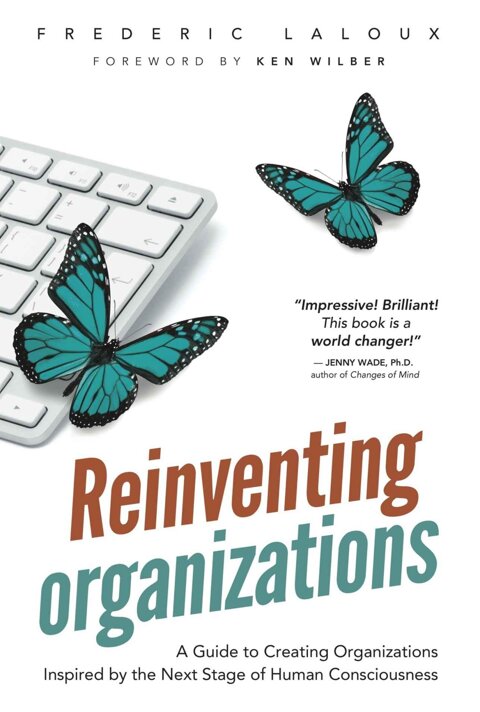Frederic Laloux, Reinventing Organisations
It has since almost become a consulting hype, but this does not make Laloux’s book any less valuable to me.
Like Ofman’s core quadrants, the evolutionary view with which Laloux looks at organisations has enriched my understanding of organisational models and organisational cultures. He points us toward insights and starting points for prototypes of different organisational structures. And although these are not as black and white in practice, it is remarkably clarifying and promising to know that work is being done around the world on a constructive alternative to existing, often failing, models that are based on power hierarchies.
Just the fact that these insights generate so much enthusiasm among so many people is very meaningful. It shows that there is a deep desire in a large group of people to structure organisations in a different way and to use them to contribute to a greater social goal. Beyond the ego.
In my practice, I find that many organisations wrestle with their structure, or what is called the ‘organisation design’. How do we distribute tasks, how do we organise ourselves, and what structure best serves our objective? Especially in the non-profit sector, they are looking for structures that are ‘as flat as possible’, where power based on titles is tempered. This is an understandable and noble goal, although it often leads to a somewhat formless organisation where it is no longer clear who stands for what, and where all decisions always have to be made by consensus. Endless meetings, ambiguity about the decision making process, and underlying tension are often the result. Laloux describes alternative practices that are not based on a power hierarchy, but do choose a clear structure, consultation model and decision-making process.
The choice of organisation model is determined by many factors, but this choice is ultimately determined by the level of consciousness of the board and management. Do what extent does the organisation strive for a higher goal (social purpose)? Does it only do its work for profit, or has it for example chosen the principle of People-Planet-Profit? How do the board and management relate to power and ego? Do they see these as the unavoidable or even commendable traits of a good leader, or should a leader have other primary qualities to be able to work on the basis of trust and solidarity? These are the kinds of things that need to be considered before an organisation model can be chosen.
More recent articles

The world is (also) doing well
It feels strange and naïve to say the world is doing well in this time of doom predictions, climate change, shifting world powers and autocratic leaders. The world is sick in many ways ...
Continue reading
Viable System Model
What makes the Viable System Model so special to me is that it overarches every other model. It is a meta-model that applies to any healthy, viable system, both at the micro and at macro levels.
Continue reading
